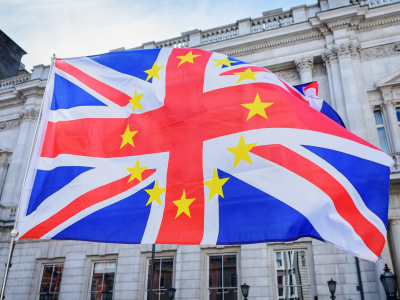
UK election and Brexit: No clarity in sight for development and trade
The UK’s Prime Minister Theresa May’s gamble on increasing her parliamentary majority and - in her mind - getting a stronger mandate for Brexit negotiations from the UK electorate has backfired spectacularly. Theresa May’s own authority has been seriously, and some would say fatally, damaged.
Attention moves to Brexit negotiations
Attention in the UK and the EU will now have to move to Brexit negotiations due to start on 19 June because of a pressing two-year timetable to conclude Article 50 negotiations at the end of March 2019. The EU’s opening stated that the negotiating position on Brexit looks unlikely to evolve because of the outcome of the UK election. The question is more if the UK government's position will evolve because of the makeup of the new UK Parliament.
There is also the very real possibility that Theresa May as Prime Minister, and the Conservative government looking likely to be formed with the support of Northern Ireland’s Democratic Unionist Party (DUP), will not last the two years scheduled for the Article 50 negotiations. The Conservative and the opposition Labour Party have both committed to Brexit in their 2017 manifestos and at present few are questioning if Brexit will be pursued.
The new UK Parliament, however, is deeply divided when it comes to the type of Brexit to be followed. So, this leaves us with three key questions. First of all, what type of Brexit will be pursued by the current UK Government and how will this be received by the rest of the EU? Secondly, will this UK government last? And, thirdly, what leverage, credibility and stability will the UK Government have throughout the two-year timetable of the negotiations?
A softer Brexit: ‘Crashing out’, or something else?
One way of interpreting the outcome of these elections is to see it as a clear no to the ‘hard Brexit’ decided by the Prime Minister although, surprisingly, Brexit did not seem to be a strong determining factor in the election. As an alternative, a softer Brexit could translate into the UK seeking to remain in the EU’s single market and Customs Union, hence with no significant changes to developing countries’ current trading relations with the UK and the EU.
Yet it is far from clear whether the rest of the EU would accommodate this at all, and certainly not without other major changes from the UK. A softer Brexit could also open possibilities for the UK to continue to contribute to the future European Development Fund post-2020, particularly if it remains outside the EU budget.
However, political instability could increase the risk of the UK crashing out of the EU without a deal after the two-year period allowed by Article 50. This could have a significant impact on the official development assistance (ODA) expenditure in the EU budget and on the off-budget European Development Fund over the short term of which the UK’s contribution is estimated to be around 15% – although more detailed assessments are available.
The most significant impact of ‘crashing out’ without a deal would be to create chaos in the UK’s trading relations globally, including with developing countries. Is there a possibility that Brexit might not go ahead at all because of these difficulties? It seems unlikely at the moment, but British politics has entered uncharted waters.
The only credible prediction is the continuation, for the foreseeable future, of political volatility in the UK, which will be reflected in the varying interpretation of the Brexit mandate. There has been some continuity, with Theresa May re-appointing to the cabinet Priti Patel as Secretary of State for International Development, responsible for the Department for International Development (DIFD). But trying to forecast with some degree of accuracy the resulting possible fallout on EU trade and development cooperation of the final set of Brexit deals becomes every day an increasing challenge.
The views expressed here are those of the author and not necessarily those of ECDPM.




